Search results for 'imperialism and colonialism'A=0'
-
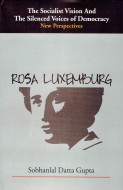
The Socialist Vision And The Silenced Voices of Democracy- New Perspectives - : ROSA LUXEMBURG
Author: Sobhanlal Datta Gupta
₹495.00Rosa Luxemburg whom Franz Mehring called “the best brain after Marx in socialist movement” after the death of Marx remained protractedly maligned for over half a century by Josef Stalin and his sidekicks in the Russian Social Democratic Labour Party — subsequently rechristened as the Communist Party of Soviet Union (Bolshevik) and thereafter CPSU — was the ‘ideologue’ of “Luxemburgism” and counter-revolutionary strain of Menshevism. Dr William A Pelz blasted “Luxemburgism “ as “clumsy, cynical and self- serving parody on the ideas of Rosa Luxemburg” at the International Rosa Luxemburg Conference — Internationale Rosa-Luxemburg-Gesellschaft (IRLS) — in Tokyo (April 2007). It was the sixth such conference. The first such meet took place in Chicago in 1998. Last year, Seoul was the venue of the IRLC which is organised by the International Rosa Luxemburg Society (IRLS) that aims at demolition of tendentious ‘Luxemburgism’ and restoration of theoretical and practical struggle, initiated by Luxemburg. The rediscovery of Luxemburg — Another Luxemburgism is possible: Reflections on Rosa and the Radical Socialist Project, the title of Dr Pelz’s paper — could be congenial after the fall of ‘Official Marxism’ (sadly with the fall of Soviet Union). Dr Sobhanlal Datta Gupta, formerly Surendranath Banerjee Chair of political science, University of Calcutta, who has attended every IRLS since 1998 and an internationally reputed research scholar on the international communist movement, has done yet another commendable work, The Socialist Vision and The Silenced Voices of Democracy — New Perspectives — Part I, Rosa Luxemburg (Seriban, Bakhrahat, South 24 Parganas district, West Bengal, Rs495), a 137-page book, packed with reference to source materials which will help scholars engaged in research on Luxemburg. Gupta is at work for the next two books under this series: one on Nikolai Bukharin and another on György Lukács. “Freedom” Luxemburg wrote famously in the Marxian spirit, “is always the freedom of those who think differently”. Unlike Bolsheviks, including Lenin, she had stuck unflinchingly to the ‘Hegelian-Marxian’ trait in contrast to ‘ultra-centralism’ of RSDLP, the ruling party (after the Bolshevik Revolution) under Lenin. She did her best to rid ‘Marxism’ or Marxian temper of what Robert Locker described as ‘organisational fetishism’, leading to ossification of the RSDLP due to ‘purely mechanistic fashion’ of running the party and the governmental power during Lenin’s lifetime. Luxemburg was compelled to criticise Lenin’s (Trotsky’s too) ‘organisational centralism’. She differed profoundly with Lenin’s aberrant experiment of vanguard role of the party that Marx never prescribed. Gupta’s advantage was his almost six month research at the archive of the Communist International (Third International or Comintern) in Moscow after it was declassified during the last years of Gorbachev era. He published a seminal work, Comintern and the Destiny of Communism in India — Dialectics of Real and Possible History, which was translated into German and Malayalam. The present treatise is split into six sequentially built chapters: New Historiography, Vision of Socialism and Democracy and Spontaneity contra Centralism of Luxemburg, Internationalism of Communism and Destiny of Rosa Luxemburg and Rosa Luxemburg and the World Today. His identification of Rosa as ‘ a heretic, a revolutionary with a difference and so remained a constant threat to all those who felt it safe not to question the claims of official Marxism’ guides a reader to understand the meaning of Dr Pelz’s paper ‘Another Luxemburgism is possible’. Her real name was Rozalia Luksenburg, born in 1871, into a Polish family of secular Jews in a small city in Russian-occupied Poland. How brutally she was killed on January 15, 1919, as a sequel to the abortive bid of her party Independent Socialist Party of Germany (USPD) to overthrow the Ebert-Scheidemann government is well known. Stalin embarked on abusive vilification of her theoretical contributions 12 years thereafter through his infamous letter ‘On Some Questions Concerning the History of Bolshevism’, published in Proletarskaia Revoliutsiia (1931). He blamed Rosa for ‘counterrevolutionary Menshevism’, a tendentious accusation. Instantaneously, Leon Trotsky, Stalin’s enemy number one, lashed out at him with a sharp polemical essay, Hands off Rosa Luxemburg. The wilful abuse against Luxemburg remained unchanged even after the Stalin period. Which was why Annelies Laschitza, the outstanding biographer of Luxemburg, had to submit the manuscript within the bureaucratic frame, set out by the central committee of erstwhile Socialist Unity Party of now-defunct German Democratic Republic, although she and Gunter Radczuan jointly headed the project for Rosa’s biography. “From her own testimony it is now evident that there were vast gaps, distortions, if not falsifications, in the name of Leninism”, noted Gupta. Laschitza’s keynote address, Encountering Rosa Luxemburg-Past and Present, at a symposium, organised by the Berlin-based Institute of History of Working Class in March 1989 is ‘a fascinating analysis’, he adds. Laschitza criticised Lenin for loose comments on the great revolutionary in his Notes of a Publicist’( November 1922), ‘without actually reading it’. Gupta’s paper Understanding Socialism as Hegemony: Rosa Luxemburg and Nikolai Bukharin at the Tokyo conference of IRLS (2007) is an original contribution. Bukharin was closer to Luxemburg than Antonio Gramsci and György Lukács, Gupta observed. Bukharin wrote poignantly: “A static and tranquillised attitude is a trait that grows out of parasitism… The active and creative quality of socialist culture results in an ever-renewed growth of both material and spiritual needs, in which the latter develop into actual passions”. Bukharin thought of ‘new man’ in socialist or communist society like Rosa. Official Marxism never thought alike. However, the new revelations about Luxemberg are mostly in German. Out of her 900-plus letters, edited by Laschitza, Georg Adler and, Peter Hudis, less than 250 have been translated into English. We hope IRLS will look into the matter. Learn More -
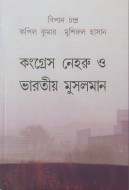
Congress Nehru O Bharatiya Musalman
Author: Bipan Chandra and Mushirul Hasan
₹100.00Congress Nehru O Bharatiya Musalman Learn More -
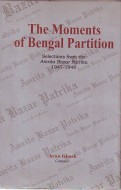
The Moments of Bengal Partition : Selections from the Amrita Bazar Patrika 1947-1948
Author: Arun Ghosh
₹995.00Arun Ghosh, founder librarian of Centre for Studies in Social Sciences, Calcutta ( Kolkata), has been engaged in painstaking research for several years on the Partition of Bengal in 1947 and its aftermath. In the present volume, he offers a contemporary record of the event in the form of a selection of news items, editorial articles and comments, letters to the editor, etc, that appeared in the Amrita Bazar Patrika, the foremost “ nationalist” daily of the time, in the nineteen months from immediately before the Partition to after, till November 1948. The selections offer insights into the positions taken by political parties and leaders as well as the reactions of the people directly affected by the Partition, leading to the massive displacement of people and their plight, a fragment of history rarely studied at such close quarters. Accessed from fast decaying material stored mostly in poorly maintained archives, the documents gathered here should serve as invaluable resources for fresh studies of the Partition. Learn More -
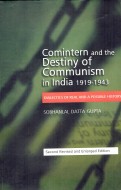
Comintern and the Destiny of Communism in India 1919-1943
Author: Sobhanlal Datta Gupta
₹895.00After the opening of Moscow's Comintern archives and the archives of the Communist Party of Great Britain in the 1990s, this is the first full length study of the impact of the Communist International ( Comintern) on the shaping of Indian communism. Based on materials collected from these once forbidden archives, the book also takes into consideration the private papers of Horst Krueger in Berlin, a whole range of inner- party documents and the new Comintern historiography ( primarily Russian and German, apart from English) that has developed over the years. The book is the culmination of the author's research for more than a decade on the shaping of communism in India in the Comintern period. The Present edition of the book incorporates many new materials which have come to the surface since the publication of the first edition in 2006 and also introduces a comparative perspective, highlighting how communism developed in the countries of the East, and examines how the path chosen by the Indian communists was so different from that of the Communist Parties in China, Vietnam, Indonesia and Korea, for example. A Malayalam version of the first edition of the book, was published in 2010. A German version of the present revised and enlarged edition was published in 2012. Learn More -
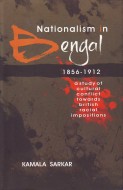
Nationalism in Bengal- a study of cultural conflict towards british racial imposition
Author: Kamala Sarkar
₹395.00In the 1857 Rising the war was lost but the seeds of a nation was sown on the battleground. The year long events encompassing the northern and the central part of the Indian subcontinent witnessed the fluctuating fortunes of the conqueror and the vanquished, the sepoys’defiance and the white rulers’ rage and revenge. Bengal was geographically far from the centres of combat and violence but the Bengalis with their deskjob skill were found in abound in the entire northern belt. They dreaded the nightmare of lawlessness of the previous regime and initially applauded the British victory. But the Rising broke the mutual trust, the English turned more racist and the Queen’s announcement rested in the paper. The middle class Bengali got little share in the administration or their land, low paid jobs and faced hundreds of discrimination. The egoistic Bengali fumed but could not revolt owing to his racial disabilities. He could not help saluting the unlettered rustic sepoys’ undaunted front. A new brand of nationalism emerged upon love of motherland. The Bengali literary stalwarts ventured patriotic writings in vernacular, the Bengali stage carried it among the common folk and the folk entertainers spread it to remotest corner. This book tells of those narratives reflecting cultural reversal. Learn More -
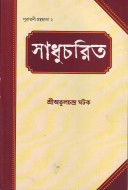
-
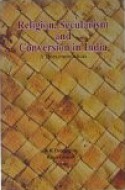
Religion, Secularism and Conversion in India
Author: A K Dasgupta and Arun Ghosh
₹695.00Religion, Secularism and Conversion in India Learn More -
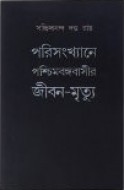
Parisankhyane Paschimbangabasir Jiban-Mrityu
Author: Sachchidananda Datta Ra
₹150.00Parisankhyane Paschimbangabasir Jiban-Mrityu Learn More -
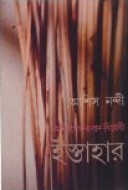
-
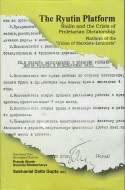
The Ryutin Platform
Author: Pranab Ghosh and Susmita Bhattacharya
₹595.00This is the first English translation of a historic document, secretly prepared in 1932 by M .N.Ryutin (1890-1937), a veteran Bolshevik, and his colleagues, under the aegis of the Union of Marxists- Leninists, an “Organization for the Defence of Marxism-Leninism”. The documents , which is a devastating critique of the Stalinist model of Soviet socialism and highlights the importance of restoration of Leninist norms in Soviet political life, is believed to have been clandestinely circulated inside the Bolshevik Party as an alternative understanding of the problems of socialism in the USSR. With the arrest and subsequent execution of Ryutin in 1937, the document went into oblivion, as it was confiscated by the Soviet authorities. After lying hidden in the Soviet archives for decades it was in 1990 that the full text of this document was published for the first time in Izvestiya TsK KPSS ( Nos.8-12) under the authority of the Central Committee of the Communist Party of the Soviet Union. Learn More

